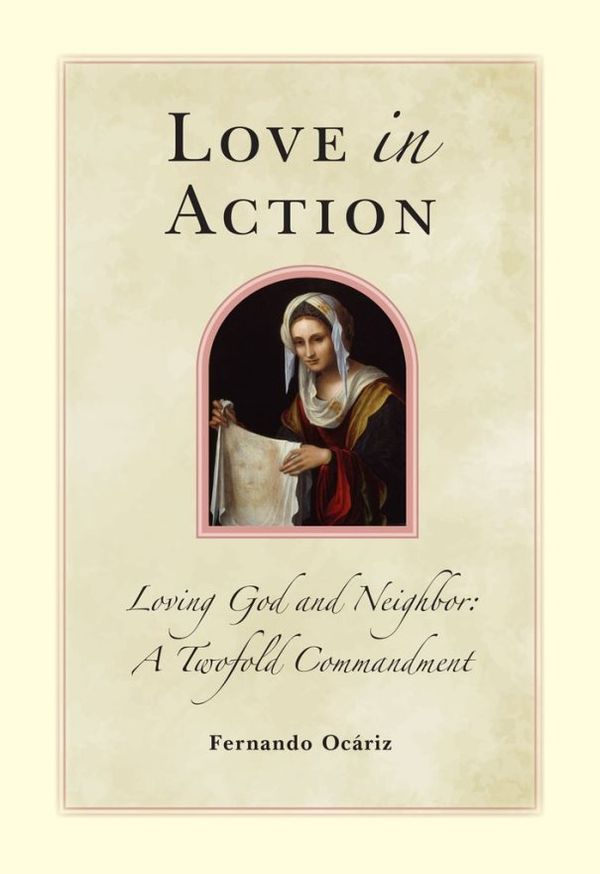
Love in Action by Monsignor Fernando Ocáriz, Prelate of Opus Dei, consists of 3 parts:
Part I: The Twofold Precept of Charity
Part II: Loving God
Part III: Loving Our Neighbor and the World
It can be ordered from Scepter Publishers here.
An earlier book by Monsignor Ocáriz, God as Father, is now available from Scepter in a new edition and can be ordered here.
A brief excerpt from Love in Action is found below:
Chapter 2: OUR LOVE FOR GOD
If we contemplate Christ Jesus, in whom “the whole deity dwells bodily” (Col 2:9), seeing that “having loved his own who were in the world, he loved them to the end” (Jn 13:1); if we consider carefully how, on the eve of his Passion, he gave himself for us with an ardent desire, as a sacrifice and as nourishment in the Holy Eucharist, then we will readily understand that the deepest meaning of each of our lives lies in loving God, giving him the glory that is his due: “If life didn’t have as its aim to give glory to God, it would be detestable—even more, loathsome.”[1]
To give glory to God, to love God, is not merely something important for us men and women, such as being grateful or responding to the love we have received. It is the only thing that matters absolutely, since it is the only true fulfilment of our human potential, without which our life is empty and meaningless: “All men who were ignorant of God were foolish by nature,” the Book of Wisdom teaches. “And they were unable from the good things that are seen to know him who exists, nor did they recognize the craftsman while paying heed to his works” (Wis 13:1).
Love and law
Divine Law is a pathway, not a roadblock. God tells us in his Law that the first and greatest commandment is to love Him. “’Hear, O Israel: the LORD our God is one LORD,’ and you shall love the LORD your God with all your heart, and with all your soul, and with all your might” (Dt 6:4-5). Long afterwards, God himself became man in Christ: he was the light that shone in the darkness, but the darkness did not receive it (cf. Jn 1:5). Trying to tempt Christ, to twist his words, a Pharisee asked our Lord: “Which is the great commandment in the law?” Perhaps the man was hoping Christ would say something that would allow him to accuse him. But our Lord answered: “You shall love the Lord your God with all your heart, and with all your soul, and with all your mind. This is the great and first commandment” (Mt 22:37). After confirming the supreme precept with words from the Book of Deuteronomy, Jesus added, also with words from Holy Scripture (in Leviticus): “And the second is like it, You shall love your neighbor as yourself” (Mt 22:39).
“With all your heart”: this is the rule and measure of the love that God asks of us. It is a love without measure, a total love. God does not ask just for a place in our heart, in our soul, in our mind, that we make space for Him alongside our others loves. Rather he wants all our love: not just a little of our love or our life, a measure of it. God is the All, the Only One, the Absolute, and so should be loved ex toto corde, with all our heart, absolutely. He doesn’t “need” our love or the glory we can give Him: he is the fullness of Being, infinitely self-sufficient. He is the All, and we cannot add anything to Him. But he wants the glory and love that we as creatures owe Him, and to the extent that we achieve this we attain full happiness, union with God, which He himself has offered us with his gift of creation, elevation to the supernatural order and redemption. God wants our happiness, which consists in leading a life in communion with Him: “God’s glory is man truly alive, and the life of man is the vision of God.”[2]
[1] Saint Josemaría, The Way, no. 783.
[2] Saint Ireneaus, Adversus haereses, IV, 20, 7: PG 7, 1037.
